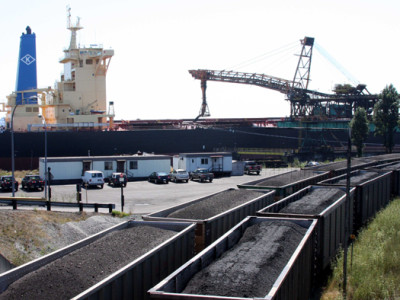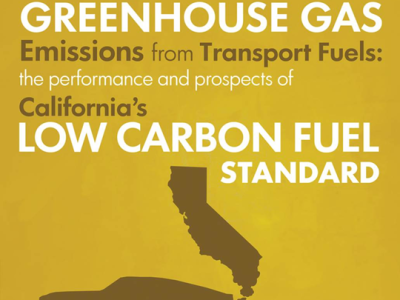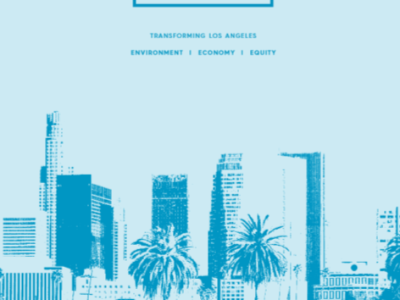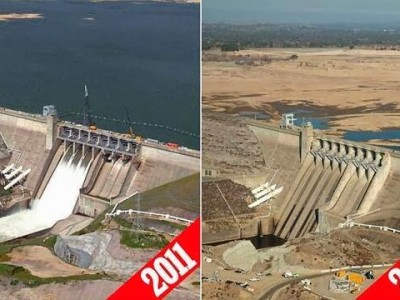Search Results for: feed
Attack of the Killer Blob
A weird patch of warm weather is killing sea lions and poisoning crabs.
There’s a weird area of warm water, which has come to be known as the Blob, sitting offshore of the West Coast. That doesn’t sound too significant, except perhaps in terms of making things more pleasant for swimmers. But actually, it’s causing a whole cascade of impacts on wildlife and humans. As the Chronicle explains: “The …
Continue reading “Attack of the Killer Blob”
CONTINUE READINGExploring Potential Challenges to EPA’s New Source Performance Standard: PART III
CCS for coal power plants, but not natural-gas power plants?
This post is the third in a mini-series (see first and second posts) exploring likely legal challenges to the New Source Performance Standard (NSPS) for power-plant greenhouse gas emissions under Clean Air Act § 111(b), and how those challenges might affect the Clean Power Plan. In my first post on EPA’s New Source Performance Standard …
Continue reading “Exploring Potential Challenges to EPA’s New Source Performance Standard: PART III”
CONTINUE READINGThe Coal Export Wars Reach Oakland
In seeking an alternative route to Asian markets, coal’s path from Utah to China via Oakland hits a snag
Expanded west coast infrastructure to support the export of western U.S. coal to Asian markets has long been part of the business plans for some of the nation’s largest coal producers. However, attempts by Powder River Basin coal interests to construct or expand coal export terminals in Washington and Oregon in recent years have been …
Continue reading “The Coal Export Wars Reach Oakland”
CONTINUE READINGCan We Trust the Science? The Challenge of Irreproducible Results
In the peer review process, articles submitted to scientific journals are sent to experts in the field who then assess the methodology, results and conclusions. Based on their feedback, authors often revise and re-submit, publishing an improved article as a result. Peer reviewers rarely attempt the actual experiments described in the paper. Irreproducible results are …
Continue reading “Can We Trust the Science? The Challenge of Irreproducible Results”
CONTINUE READINGThe Horse Manifesto
“The Law of the Horse” is a disparaging term for a legal field. We should embrace it.
It’s fairly common to refer to environmental law or energy law as being like the Law of the Horse – implying that they are somewhat ersatz legal fields. For those who are not familiar with the reference, The Law of the Horse was apparently the title of a legal treatise that collected all the cases …
Continue reading “The Horse Manifesto”
CONTINUE READINGReligion’s “Traditional” View: A Friendly Dissent
Faith Has Long Embraced Environmental Values
Dan’s nice summary of Laudato Si will be the first of several commentaries on the page. But before we get going, I have to offer a friendly dissent on one aspect of it — an aspect that unfortunately plays into a lot of discussion of religion. Dan writes that Pope Francis’ encyclical seeks to re-read …
Continue reading “Religion’s “Traditional” View: A Friendly Dissent”
CONTINUE READINGControlling Greenhouse Gas Emissions from Transport Fuels
The Performance and Prospects of California’s Low-Carbon Fuel Standard
Transportation is the largest contributor of greenhouse gas emissions in California, responsible for about 37 percent of the state’s total emissions. This distinction makes the sector a prime target for regulation. But with tens of millions of emitting tailpipes, fuels sourced from out of state and around the world, decades-long vehicle lifespans, and many other …
Continue reading “Controlling Greenhouse Gas Emissions from Transport Fuels”
CONTINUE READINGLos Angeles Releases First-Ever Urban Sustainability “pLAn”
Envisioning greener energy, cleaner air, and reduced consumption in LA by 2035
Perhaps no metropolis is better positioned than Los Angeles to pioneer ground-breaking environmental initiatives. As the second-largest U.S. city, and with the country’s largest municipally owned utility, a world-class research university–UCLA, and the blessings of abundant sunshine and a temperate Mediterranean climate, Los Angeles could serve as a global model for urban sustainability. Today, the …
Continue reading “Los Angeles Releases First-Ever Urban Sustainability “pLAn””
CONTINUE READINGAre California’s New Mandatory Water Restrictions an April Fool’s Day Joke?
It’s Time to Pressure Alfalfa Growers to Stop Wasting Water
Now that Governor Brown has ordered the state’s first mandatory water restrictions, it’s important to keep one number in mind: one-sixth. That is the amount of California water that goes to one crop: alfalfa. It’s a pretty low value crop. And it is not even for human consumption directly; it is used for cattle feed. It …
Continue reading “Are California’s New Mandatory Water Restrictions an April Fool’s Day Joke?”
CONTINUE READINGNews from a Warming World
Coal versus wind power; China’s air; poll results; Ted Cruz; arctic ice.
There’s been a lot of interesting environmental news recently, much of which seems to have gotten little notice. The topics range from U.S. wind power (growing) to U.S. coal power and Arctic sea ice (both shrinking), with a bit of Ted Cruz to spice things up. Here’s the round-up: Out with coal, in with wind. The …
Continue reading “News from a Warming World”
CONTINUE READING












